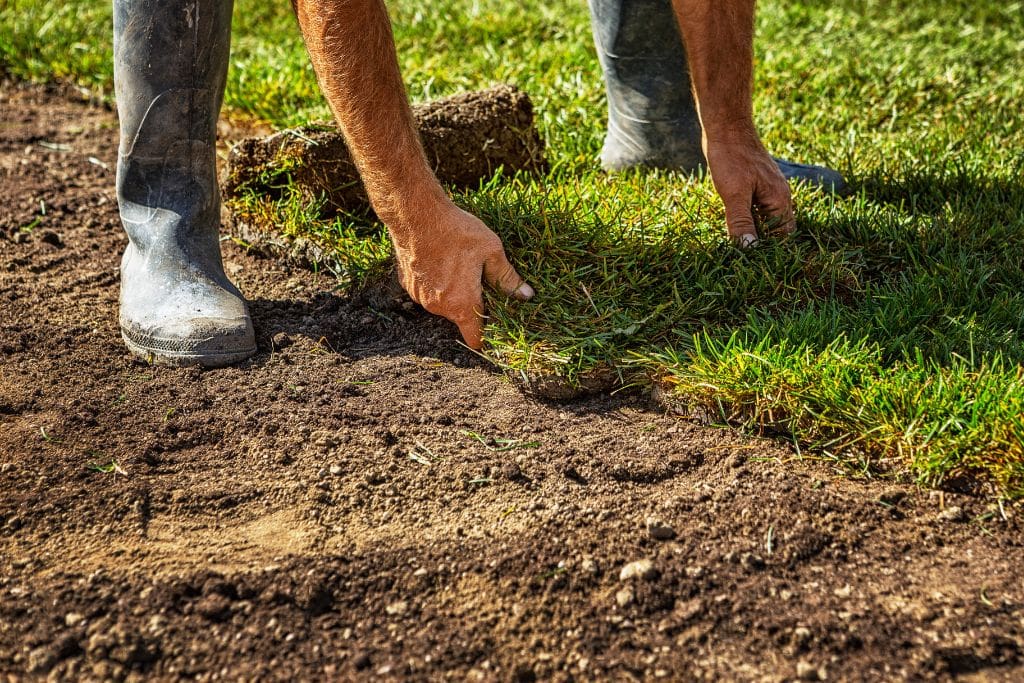
9 Effective Lawn Care Tips Using Organic Material for Lawns
Keeping your lawn lush and healthy doesn’t have to be expensive or harmful to the environment. Using organic material for lawns, you can keep your grass green and your soil healthy without chemical use. At My Neighbor Services, we believe in simple, natural ways to care for your lawn that benefit your yard and the planet. Below are nine practical tips that will help you add valuable organic matter to your lawn.
Use Grass Clippings as Natural Fertilizer
Using the leftover grass clippings from mowing is among the easiest ways to add organic material to lawns. Instead of bagging up the grass clippings, leave them on the lawn. These clippings are packed with nutrients like nitrogen, which help feed your grass naturally. When grass clippings break down, they release nutrients into the soil and act like a natural fertilizer. This process helps improve your lawn’s health without costing you anything. Plus, it reduces waste!
Add Compost to Your Lawn
Compost is one of the best ways to enrich your lawn. It’s a mixture of decomposed organic matter—such as leaves, vegetable scraps, and other yard waste—that helps improve the soil structure. Applying a thin layer of compost over your grass in a process known as top dressing. This helps your lawn grow stronger and makes the soil more capable of holding water and nutrients. Adding compost once or twice a year can give you a healthier, greener lawn.
Use Kitchen Scraps in Your Compost
Your kitchen can be a goldmine for organic material for lawns. Things like vegetable peels, eggshells, and coffee grounds can be composted and added to your yard. Over time, these kitchen wastes break into rich organic matter that improves soil health. By making compost out of your household waste, you reduce trash and boost your lawn at the same time.
Switch to Organic Fertilizers
Many chemical fertilizers might give your grass a quick boost, yet they can harm the soil and water supply over time. Instead, choose organic fertilizers from natural materials like bone meal, fish emulsion, or composted manure. Cow, horse, chicken/poultry, sheep, goat, and llama manure must be composted well and aged to prevent burning plants. These organic fertilizers gradually release nutrients into your lawn, feeding it for a longer time. This method improves your lawn’s growth and encourages good microbes that help break down organic matter in the soil. Using organic material for lawns in the form of natural fertilizers is a safer and more sustainable choice for your yard.
Apply Top Dressing with Mulch
Mulch isn’t just for garden beds. Applying mulch to your lawn—whether it’s leaves, wood chips, or straw—can protect your grass while adding more organic material to the soil. Mulch helps maintain moisture, prevents weeds, and, over time, breaks down to feed the soil. Adding a thin layer of mulch in areas that need extra care, like bare spots, will help improve your lawn’s health and keep it looking green.
Aerate Your Lawn for Better Soil Health
Aeration is a simple method in which small holes are poked into the soil to let nutrients, air, and water reach deeper into the roots. This helps break down organic material faster and improves the lawn’s ability to absorb nutrients. By aerating your lawn, especially before adding organic material, you help boost the effectiveness of the natural amendments you use, like compost or clippings. Aeration should be done once a year for best results.
Use Natural Fungicides and Weed Control
Instead of using harsh chemical fungicides or weed killers, you can opt for natural alternatives that are safer for your lawn and the environment. Products like corn gluten meal prevent weeds from growing and provide a bit of nitrogen, which is great for feeding your grass. Many natural fungicides, such as neem oil, horticultural oil, and bicarbonates, help keep diseases at bay without damaging your lawn’s natural ecosystem. These options keep your yard healthy while protecting the beneficial organisms in the soil. They work well alongside the organic material for lawns you’re already using.
Add Organic Amendments in the Spring
Springtime is the perfect time to give your lawn a little boost by adding organic material like compost, peat moss, or composted manure. These organic amendments improve your soil’s texture, making it better at holding water and nutrients. They also add beneficial bacteria and fungi that help your lawn grow strong roots. Applying these organic materials in early spring prepares your lawn for a healthy growing season.
Water Deeply to Activate Organic Material
Finally, watering is crucial for helping the organic material in lawns break down and be absorbed by the soil. Water deeply but less often to encourage your grass roots to grow deeper. Deep watering helps the organic matter in your soil break down more effectively and ensures that the roots absorb nutrients. Shallow watering can cause roots to remain near the surface instead of rooting downward, leading to weaker growth.
Wrapping Things Up
Using organic material for lawns is the best way to keep your yard healthy, green, and thriving. By choosing natural methods, you’re giving your lawn the care it needs and helping the environment. With these easy tips, your lawn can look great all year without the need for harmful chemicals.
If you’re ready to give your lawn the organic boost it deserves, contact My Neighbor Services in TX today. Let us be your partner in creating a beautiful, healthy lawn the natural way!
Frequently Asked Questions
Why should I use organic material for lawns?
Using organic material for lawns improves soil health, helps your grass grow strong, and avoids harmful chemicals. It’s also better for the environment.
Can I use kitchen scraps to improve my lawn?
Yes! Composting can turn vegetable peels, eggshells, and coffee grounds into organic matter, which will help feed your lawn.
How frequently should I apply compost to my lawn?
Adding compost once or twice a year is enough to keep your soil healthy. It helps the grass grow better and stay green longer.
When is the best time to add organic matter to my lawn?
Spring is the best time to add organic material like compost. It helps prepare your lawn for the growing season by improving the soil’s ability to hold water and nutrients.
How does aerating my lawn help with organic material?
Aeration makes tiny holes in the soil, allowing water, air, and organic material to reach the roots more easily. This helps your grass better absorb nutrients.
Can mulch help improve my lawn?
Yes, mulch, such as leaves or straw, protects the soil, keeps moisture in, and adds organic matter as it breaks down. It’s great for bare spots and improving lawn health.
What’s the difference between organic and chemical fertilizers?
Organic fertilizers, which come from natural sources like compost or bone meal, feed your lawn slowly. In contrast, chemical fertilizers can give your lawn a quick boost but may harm the soil and environment over time.
Are natural weed and disease controls good for my lawn?
Yes, natural products like corn gluten meal help control weeds while adding nitrogen to the soil. Organic fungicides such as neem oil protect your lawn without hurting the helpful organisms in the soil.
What should I use to repair bare spots in my lawn?
To enrich the soil and encourage natural grass growth in bare patches, apply compost or mulch. These organic materials will repair the area without using chemicals.
How can My Neighbor Services help with organic lawn care?
My Neighbor Services uses organic material for lawns to keep your yard healthy without chemicals. We provide expert advice and services to help your lawn grow strong naturally! Contact us today to get started.
Related Article:
Ultimate Guide to DIY Lawn Service: Proven Care Tips for a Perfect Yard
